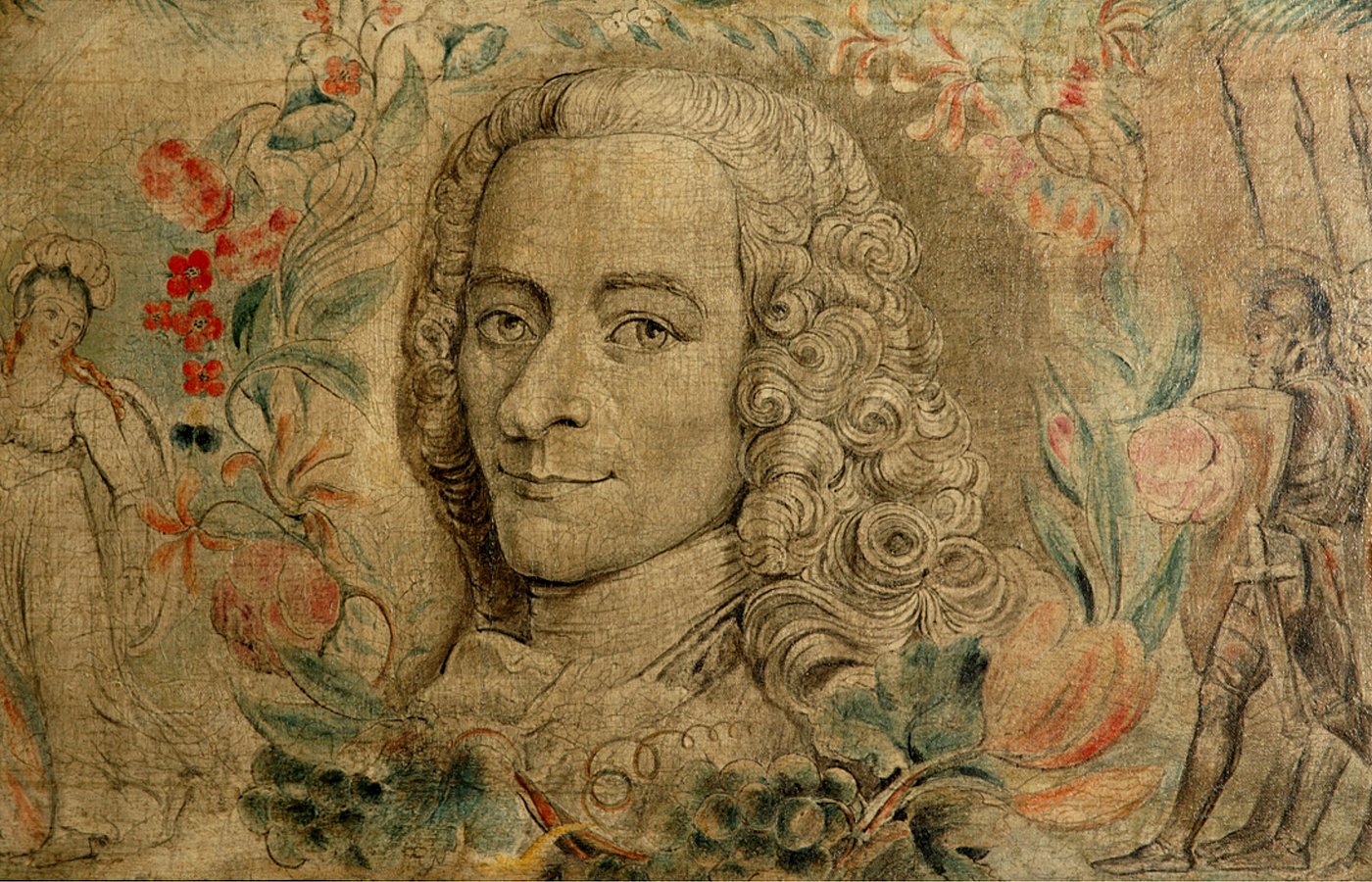“Attempts to coerce soul and mind have led throughout all of history to death, to orphans, to widows, to mangled bodies, to societies that devolve into civil war… it is a catastrophic historical framework.”
Part 2: The English Lesson for France: Religious Toleration and Restraint of Power
Voltaire introduced his readers to an idealized England of religious pluralism and tolerance, balanced government, fair taxation, commercial energy, and the triumph of the secular over the sectarian. His portraits of all the major religions in England celebrated whatever seemed more tolerant, fair, and decent than the contrasting behaviors of the eighteenth-century French Catholic Church. He likewise praised the commercial activity and prosperity of England, linking it to the greater religious tolerance and fewer aristocratic values of Britain as opposed to France. He conceded that the building blocks of liberty in England had emerged from rivalries among elites eager to despoil the common people, but he presented an England that had succeeded in achieving a liberty unknown in France by limiting and dividing power, and he urged that such liberty was a cornerstone of British well-being.
In the course of the Philosophical Letters, the narrator's initially circumspect voice became increasingly assertive and self-confident as he contrasted—ever more explicitly—a religiously intolerant, aristocratic, and excessively traditionalist France with a commercial, politically free, and religiously tolerant England. In some chapters, he attempted nothing less than a reevaluation of what was important to a progressive and free human life.
Reading: Voltaire, Philosophical Letters, with emphasis on Letters 1-10. The recommended edition is the Hackett edition, which is widely available in both print and digital formats.
This lecture and discussion were recorded with a live online audience on April 21st, 2022.
For Part I, please click here.
Authors and Works Mentioned in this Episode
Alan Charles Kors, ‘Encyclopedia of the Enlightenment’
Alan Charles Kors, ‘Atheism in France, 1650–1729: The Orthodox Sources of Disbelief’
Voltaire, ‘The Philosophical Letters’
William Penn
Socinianism
John Locke
Deism
Edmund Burke
Links of Possible Interest:
Dr Kors’ Profile at FIRE
https://www.thefire.org/alan-charles-kors
Encyclopedia of the Enlightenment
https://global.oup.com/academic/product/encyclopedia-of-the-enlightenment-9780195104301
Stephen Blackwood
https://www.stephenjblackwood.com
Video Timeline
- 0:00 – Introduction
- 2:09 – Kors’ Lecture: Criticism and response to Voltaire’s work in his time
- 8:09– Context of ‘The Philosophical Letters’ publication
- 17:23 – Voltaire’s use of irony
- 19:43 – Voltaire on the Quakers and the introduction of pluralistic thought
- 30:00 – Religion studied in natural terms
- 42:22 – The Socinians and the founding of new religious sects
- 44:48 – The virtues of English governance versus the French aristocracy
*Discussion*
- 54:52 – Voltaire’s admiration of the Quakers’ first principles
- 1:01:59 – The limitation of arbitrary power; religious monism as an origin for human suffering
- 1:11:44 – Why could England control the power of kings?
- 1:15:33 – Voltaire’s support for English empiricism over French rationalism
- 1:19:27 – Political radicalism and Voltaire’s fear of disorder
- 1:22:22 – Voltaire’s ‘reform of the mind’ and the necessity of humility
- 1:32:42 – The cost of coercion and what is at stake in freedom of conscience



